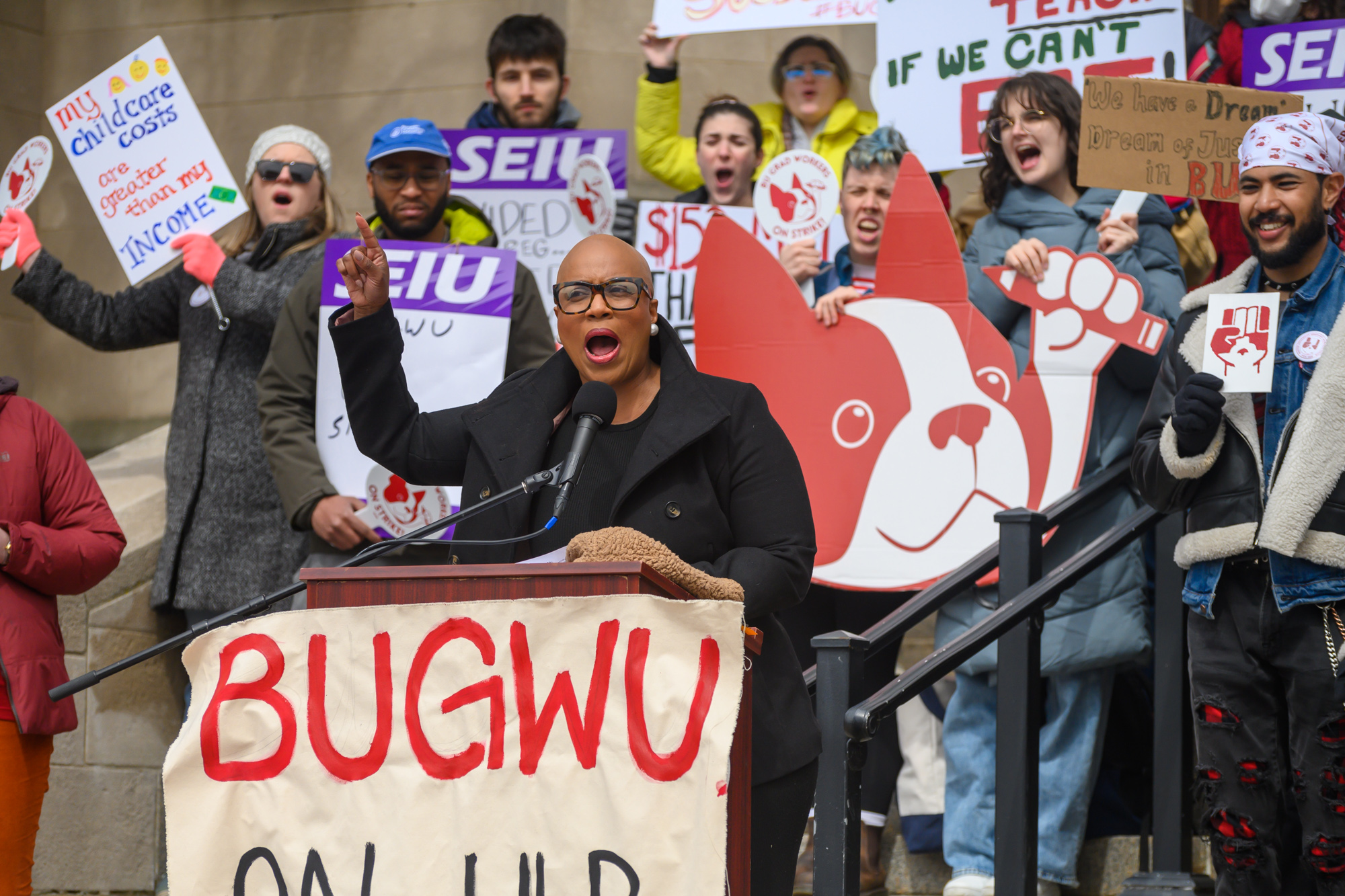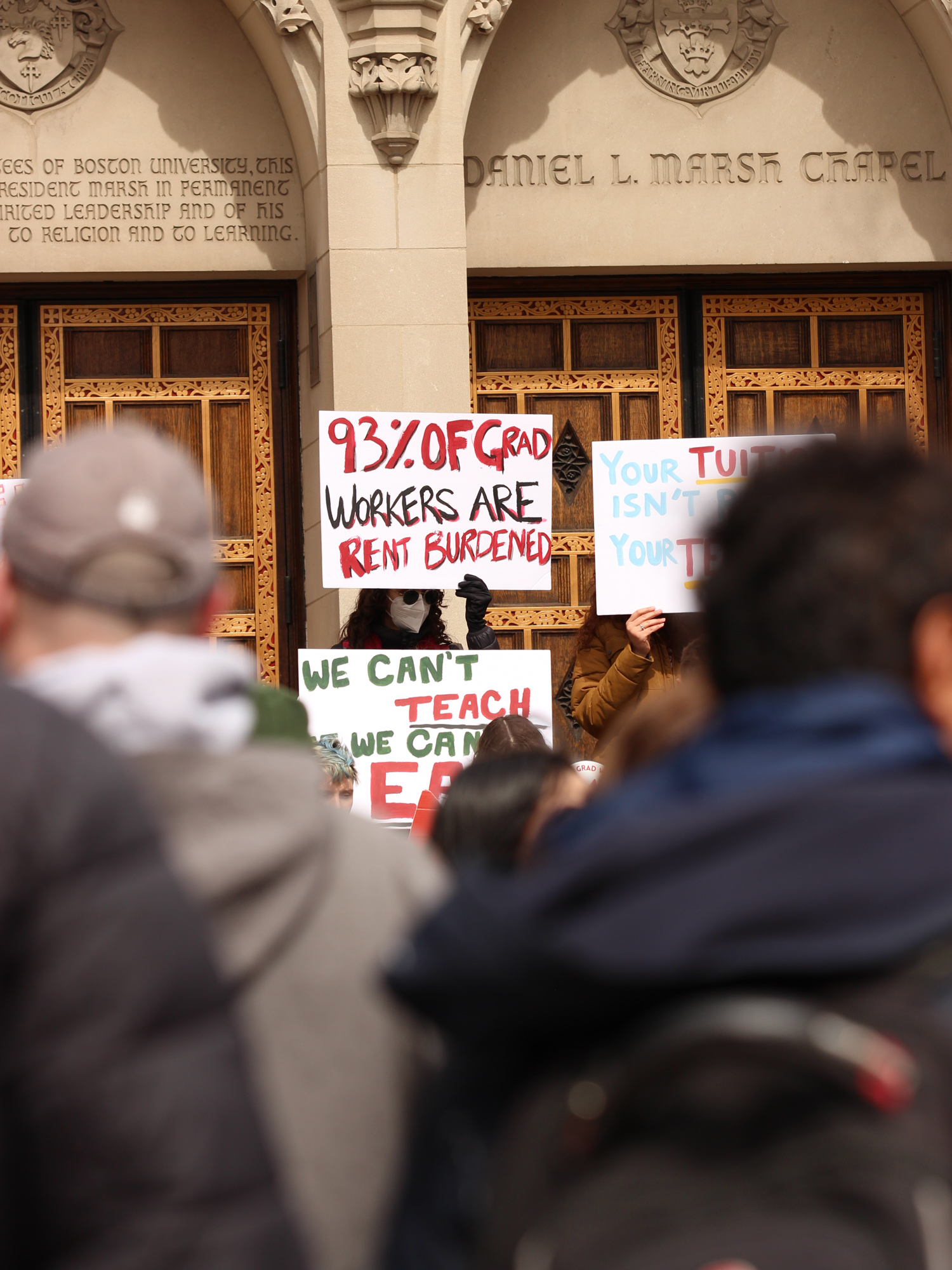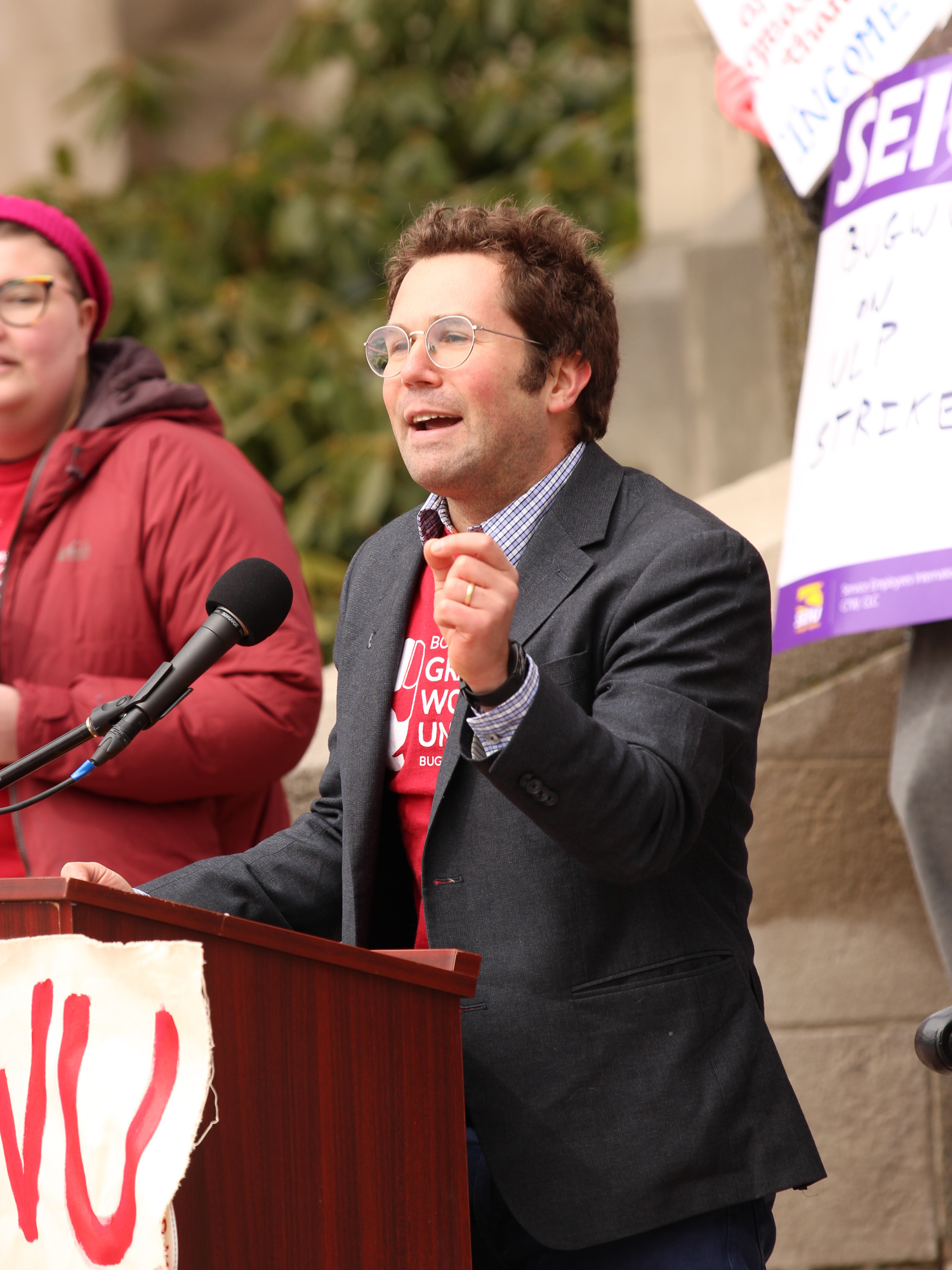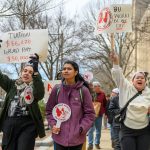See more Daily Free Press coverage of the BUGWU strike here.
Undergraduate students, local politicians, and professors showed up to support the Boston University Graduate Workers Union during their first rally at noon today in Marsh Plaza.
In her speech addressing grad workers, U.S. Representative Ayanna Pressley said she supports the “essential work” they do and has “got [their] back every step of the way.”

“I’m proud to stand with the BU Grad Workers Union,” Pressley said. “I’ll continue alongside you pressing for robust investments and our students and our educators and our school communities from the elementary level to the university level.”
Pressley said graduate workers are on “the front lines to rebuild higher ed” as students are coping with the effects of the pandemic.
“There is no way we’re putting students first by putting grad workers last,” Pressley said. “How is it that you pour into our students, our babies, when you are struggling to take care of your own?”

U.S. Senator Elizabeth Warren handed out donuts as she circled around Marsh Plaza, also voicing her support for the union.
“I want the BU administration to sit down, bargain in good faith with people who are doing a lot of the hard work here at the university,” Warren said in an Instagram reel posted by BUGWU.
The speeches throughout the afternoon were facilitated by Service Employees International Union Local 509, a union organization representing nearly 20,000 workers, among those other BU unions, such as the part-time faculty union and the ResLife Union.
Nikunj Khetan, a student pursuing a doctorate at BU, said he is living off hourly rates less than the national average working as a labor-intensive teaching assistant.
“We do everything from teaching to research to mentoring of undergrads,” Khetan said. “BU claims, for example, we only work 20 hours a week and prevents us from working anywhere else, and pays us barely anything that amounts to a living wage.”
Graduate workers receive stipends ranging from an estimated $27,000 to $40,000 annually for working up to 20 hours per week, according to the Boston Globe.
The university acknowledged the strike in an email to students and informed students that classes will proceed as usual, according to an email sent by Interim Provost and Chief Academic Officer Kenneth Lutchen.
“As the strike proceeds, we are working hard to ensure your education proceeds as smoothly as possible,” Lutchen wrote. “In the event you confront challenges emerging from the strike (e.g. discussion section not meeting, etc.), we ask that you contact assigned staff in your school or college, and they will help you navigate the situation.”
Deeana C. Klepper, a professor of history and religion in the College of Arts and Sciences, attended the rally and said graduate workers are an “intermediary between faculty who seem so distant to undergrads and the undergrads themselves.”
“Our graduate students really deserve more than they have,” Klepper said. “I think it’s important for them to see that faculty are out here with them.”

Klepper highlighted the vital role graduate workers have who turn larger classes into “something with human faces.”
“In large classes, the teaching fellow meets with students for an additional hour a week where they can talk about in more depth things that come up in lecture,” Klepper said. “That’s also a lot of times where big creative projects happen.”
Jasmine Richardson, a junior in CAS, said graduate workers are easier to relate to in the classroom because they are also students.
“They fulfill a role that professors just are not able to do,” Richardson said. “They understand a lot more what it’s like to have been in our shoes.”
Meiya Sparks Lin, a student pursuing a doctorate at BU, works as a graduate TF in the Department of English and said she is striking to become a better educator.
“We’re doing this because we understand that students’ learning conditions are our working conditions,” Lin said. “We want to be better teachers for our students.”
In a speech to the crowd, Lin said BU is “bargaining against themselves” and graduate workers will not stop striking until their demands are met.
“This is our strike,” Lin said. “This is our university. We run this place and we can shut it down.”
Nina Silber, a professor of history in CAS, said professors were instructed by BU administration to keep track of the graduate workers that were striking.
“If we don’t provide that information, they’re going to take money away from our departmental budgets,” Silber said.









When news fails us: What specifically is meant by keeping track of striking grad student workers? What information is the administration seeking?
Nina Silber, a professor of history in CAS, said professors were instructed by BU administration to keep track of the graduate workers that were striking.
“If we don’t provide that information, they’re going to take money away from our departmental budgets,” Silber said.